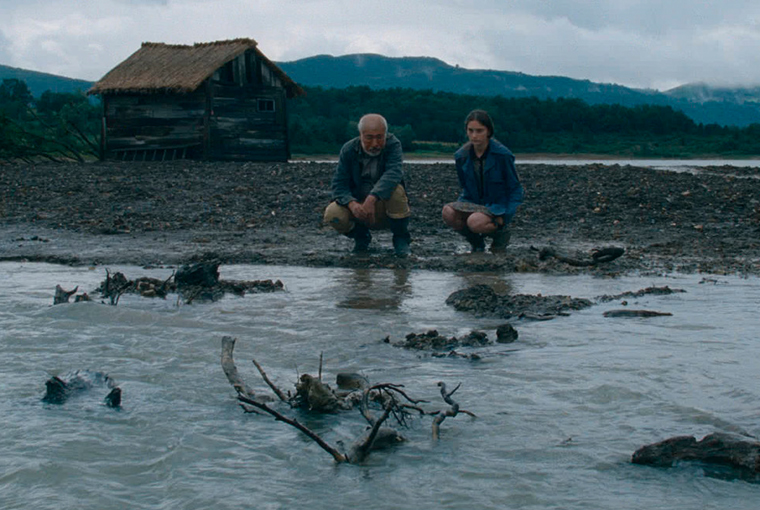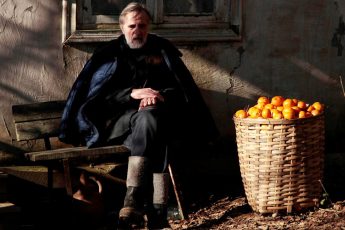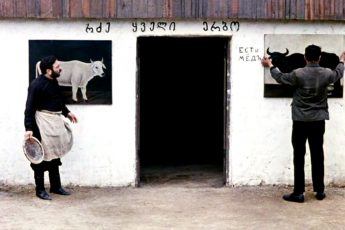No Man's Land
Giorgi Ovashvili’s Corn Island (Simindis kundzuli, 2014)
Vol. 45 (September 2014) by Lilla Puskás
Ovashvili’s movies are festival favorites: his previous feature, The Other Bank was awarded with 28 different awards, among others with the Golden Lily and the FIPRESCI Prize at the goEast Film Festival in Wiesbaden in 2009. Corn Island was released at the 49th Karlovy Vary International Film Festival, taking home two awards (KVIFF Grand Prix, Award of Economical Jury) right away. It was also nominated for the Audience Award at the San Sebastian International Film Festival.
Corn Island is a kammerspiel for three actors. The plot starts with the formation of a new an island on the Enguri river in the North-Western area of the Caucasus. An old Abkhaz fisherman decides to build his new home there. He takes his teenage granddaughter with him and teaches her how to survive in nature. The island is tiny, but large enough for the two people and their self-supporting lifestyle. However, their idyll soon gets disturbed by unpredictable visits from Georgian and Russian military units. When the old man finds a badly wounded soldier, he can no longer afford ignoring the conflict.
The movie’s plot revolves around the problematic situation of the region’s geopolitical borders: the Enguri river is a natural barrier separating Georgia and the disputed territory of Abkhazia. In consequence of the violent ethnic conflict that inflamed in 1992-93 between Abkhazians, Russians and Georgians, both sides keep military troops in the region. Russia closely watching over the situation with its “peacekeeping” troops doesn’t necessarily make things better. The newly formed sand island depicted in the film does not yet belong to any country, and is a kind of demilitarized zone.
A biological borderline also appears in the movie. Because of her age, the granddaughter is in a transit position: she’s no longer a child, but not yet an adult either. She is represented as an innocent, even naive character (her connection to childhood is expressed through a doll – a trite symbol -), but her body already shows the signs of growing up, which makes her discover her feminine side. In the dominantly male environment of military squads and snipers, she is the only woman, and her sexual maturity represents an additional source of danger.
With its theme, location and almost mute protagonists, the movie recalls Kim Ki-Duk’s The Bow. Viewers may also find similarities in the storyline and visual framing with Kornél Mundruczó’s Delta, especially the characteristic high-angle shots which emphasize the relationship of the protagonists. Even if its basic idea is too universal, its captivating visuals (Elemér Ragályi’s precise camerawork is dominated by long tracking shots), delicate musical score (Josef Bardanashvili’s film score contains tinkling melodies on xylophone, music box and kalimba), dramaturgically compelling storyline and interest in social issues make Corn Island a unique and memorable piece.




Leave a Comment